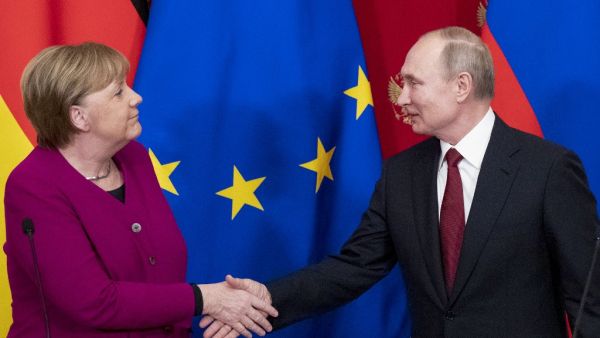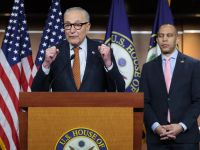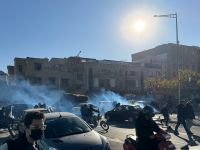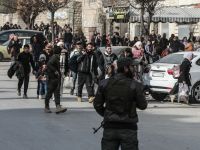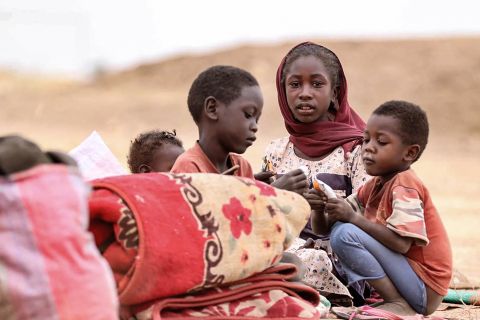Vladimir Putin has warned that a full-scale war in the Middle East would be a 'catastrophe for the whole world'.
The Russian president said 'large-scale military conflicts' would be a 'catastrophe not only for the region, the Middle East, but for the whole world,' leading to 'new flows of migrants' to Europe and other regions.
This would also cause 'huge damage to the global economy,' he said.
His remarks came during talks with German Chancellor Angela Merkel in Moscow on Saturday to discuss growing tensions in the Middle East and other issues.
The talks also covered the Syria conflict where a fresh ceasefire brokered by Russia and Turkey is expected to go into effect after midnight in the last major opposition bastion of Idlib.
Putin and Merkel also backed a Libya peace conference in Berlin being organised by UN special envoy to Libya, Ghassan Salame, which could be held in the coming weeks.
Putin called the initiative 'timely' and a 'very good step in the right direction.'
The conference must include 'countries that have a real interest in promoting a peace settlement' and decisions must be agreed preliminarily with the Libyan sides, with the involvement of Salame, he said.
While Turkey has sent troops to support the UN-backed Tripoli government, Moscow is accused of backing mercenaries supporting Haftar in his fight against the government.
Putin reiterated Moscow's denial of this, saying: 'if there are Russians there, they do not represent the interests of the Russian state and do not receive money from it.'
In Libya, 'unfortunately large-scale military action is continuing and terrorist activity is growing,' said Putin, who is keen to stress his role as a regional powerbroker.
'All this undermines stability not only in the region itself but has a negative influence on Europe,' he added, citing smuggling of drugs and weapons.
He stressed the need to 'restart the political process with the final aim of overcoming the split inside the country and forming single state institutions.'
Earlier in the week, the German leader's spokesman described Russia as 'indispensable when it comes to solving political conflicts' due to its status as a permanent member of the U.N. Security Council.
Germany and Russia are among the world powers that have been trying to salvage the 2015 nuclear deal with Iran after the United States withdrew from the agreement unilaterally in 2018.
The prospects of rescuing the nuclear accord could be hurt by Iran's admission Saturday that one of its anti-aircraft missiles hit a Ukrainian airliner this week, killing all 176 people aboard.
After her meeting with Putin, Merkel said of the plane catastrophe in Tehran: 'It is good that those who are responsible are known and I believe that everything has to be done now to find a solution with those countries where those who are affected came from.'
The German and Russian leaders also discussed the conflict in war-torn Libya. Putin said he supports Germany's proposal for a conference on resolving the Libyan crisis.
'We think Germany's initiative to host an international conference on Libya in Berlin is timely,' he said.
'The Berlin conference needs to ensure attendance of those states that are truly determined to help resolve the Libya crisis so that it could bring about tangible results. What is more important is that its decisions should be negotiated in a preliminary plan with the Libyan parties.'
Putin also brushed off recent claims that mercenaries from a Russian company connected to a Putin ally were fighting in Libya on the side of a renegade general. He said that if any Russians are there, they do not represent the government.
Merkel and Putin also discussed efforts to end the conflict in eastern Ukraine and prospects for the Nord Stream 2 pipeline that would ship Russian gas to Germany. U.S. sanctions have obstructed construction of the pipeline.
This article has been adapted from its original source.


